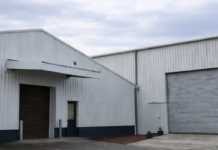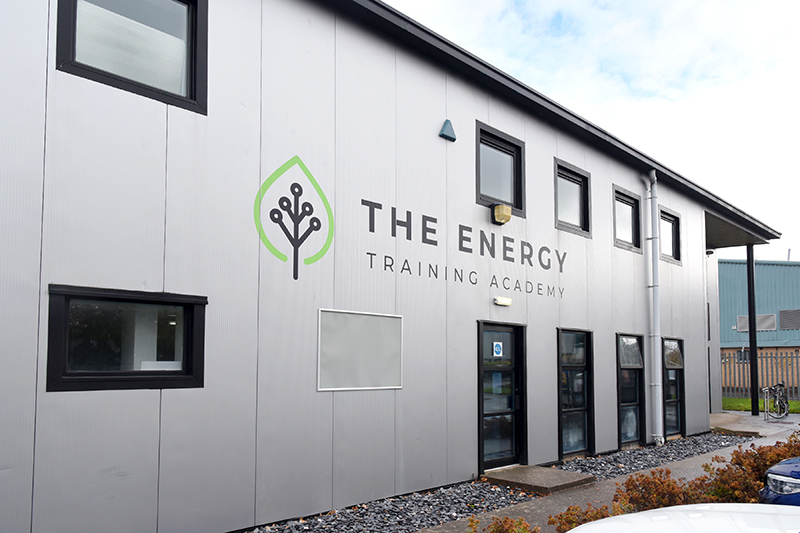
THE co-founder of a social enterprise training academy offering a range of net zero-related courses has admitted he has been taken aback by the level of support from global, national, and local companies less than a year since its launch.
The Energy Training Academy in Dalkeith is the work of experienced heating engineers, Andrew Lamond and Mark Glasgow. The facility offers courses in disciplines such as domestic and commercial gas, LPG, unvented cylinders and water safety, heat pumps, solar PV, electrical, and EV.
Project Scotland was recently given a tour of the impressive site by Andrew, who explained how he entered the sector thanks to a modern apprenticeship with Scottish Gas after completing his time as a helicopter engineer in the Royal Navy. Keen to give others the same opportunity, he and Mark opted to launch the operation as a social enterprise.
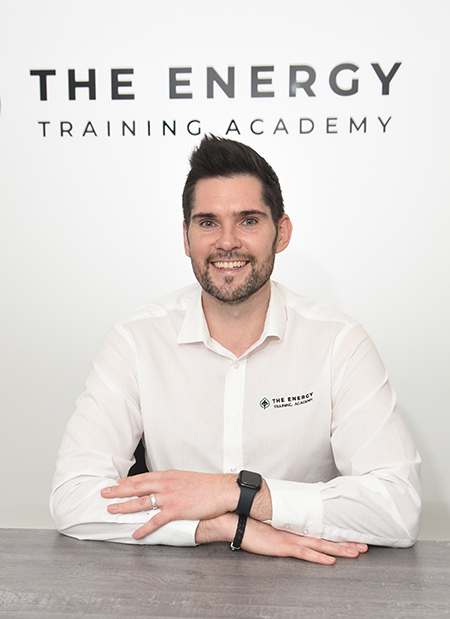
Eight months on, the first batch of trainees are due to become qualified engineers. The cohort of six includes the wife of the MD of a local gas, heating, and plumbing firm. She is being upskilled using government workforce development funding to move from her office role to service and repair work, which Andrew said exemplifies a great use of funding and highlights the opportunities they are looking to create.
Key to this is the academy’s offering of practical training. Global energy company, Vattenfall, has its own space in the academy kitted out with its latest technology, as well as doubling up as a conference room. Vattenfall is set to be joined by further big names in the coming months.
“It’s been unbelievable to have these big companies come in so early and entrust us with their training,” Andrew said, before paying tribute to the ‘amazing’ job local businesses have also done – particularly in the creation of the academy’s fully functioning net-zero ‘house of the future’.
The one-bed bungalow will comprise a kitchen, living room, bathroom, loft, and garage, all kitted out with the latest net zero tech. The aim is to use the house, which is located within the training centre, to upskill, address retrofit challenges, and provide energy efficiency education for young people.
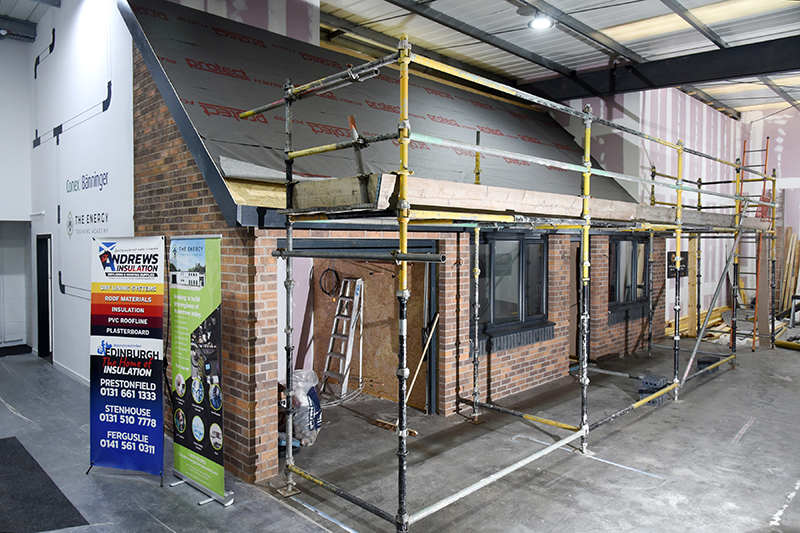
The project has been a collaborative effort involving firms such as The Garage Conversion Company, St Andrews Timber & Building Supplies, DMG roofing, Edinburgh Building Solutions, DC Electrical Services, LVT flooring, City Access Scaffolding, CEF, Polypipe, Ideal, Worcester Bosch, Alpha, MyEnergi, Connex Bänninger UK, Eurocell, NuStyle products, Smith and Frater Kitchens, IHellios Living Reinvented, and Kight off grid – solar powered street lighting.
Lothian Glass was behind the supply and installation of energy efficient doors and windows, which feature Thermo Technology to keep the heat in, as well as a glass reinforced plastic skin, a multi-chambered uPVC profile, and a patented co-ex bubble gasket.
Further innovations include technology capable of utilising recycled heat from bath water to warm the house, indoor sprinklers to simulate a rain collection system which powers the toilet, and infra-red technology by IHelious Living Reinvented which can detect heartbeats and breathing so as to determine when to power down heating.
The house is playing a crucial part in the academy’s emphasis on practical learning, with it allowing for the simulation of tricky situations such as dealing with an apoplectic customer who has an issue that requires calmness, or entering a house where illegal substances are being taken, a potentially dangerous dog is roaming, or just how to properly sit down and chat with an elderly person who appears a bit lonely.
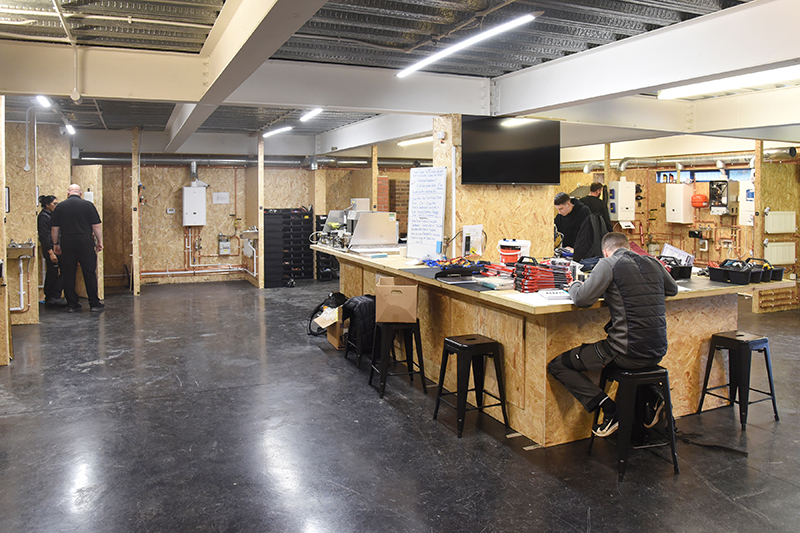
“You can know the textbooks inside out, but it’s a different story actually putting that into practice in a customer’s property under pressure when water is pouring out a pipe onto their carpet,” Andrew explained. “It’s also giving the customer value. If they’re paying £70-odd for a service, give them value for that – make them trust that the work has been properly done, communicate at the start, throughout, and end of the work. Communication is hugely important, particularly when it comes to gas and that’s what we teach in the net zero home.”
The academy is keen to go one step further with its training and eventually have companies tell them what sort of employee they want.
“A lot of companies are saying it’s hard to get good people,” Andrew explained. “What we’d like to see is companies coming to us and saying, ‘We need eight new engineers, and this is how we want them to operate’. We can train them with that company in mind. So, when they come out the other end and are qualified, they’re ready to just integrate into that existing team.”
More work is also being eyed with local schools, with Andrew keen to have kids visit on a regular basis. Those looking to make the jump into the sector are also being targeted, with Andrew looking to drive home the message that many unknowingly already possess crucial skills required for such roles.
“We’ve had bus drivers coming through and when asked what transferable skills they have they’d say none,” Andrew continued, before pointing out how many unhappy customers bus drivers deal with on a daily basis, meaning they probably have more experience dealing with difficult customer situations than a lot of engineers!
“It’s giving people opportunities where previously they never had any,” he added. “One of the main reasons we wanted to do a social enterprise is because there’s people out there who have maybe missed the boat for whatever reason; they might be practical and good with their hands but they’ve not gone into that college system and they’re maybe mid-20s with a young family. We want to give these people an opportunity.”





